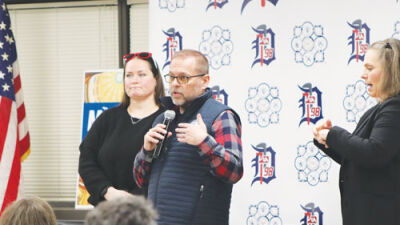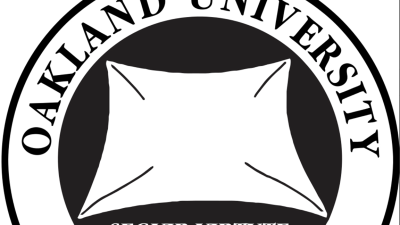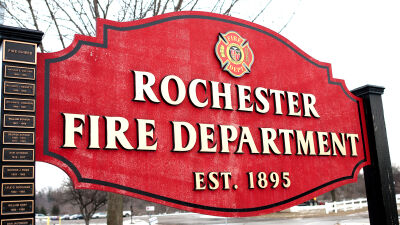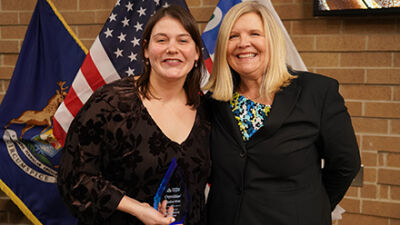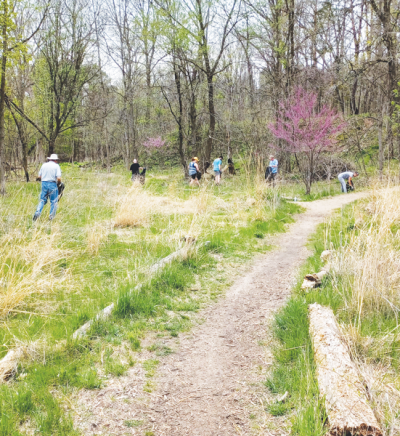
Volunteers assist the city in the manual removal of invasive garlic mustard from the understory during a garlic mustard pull at the Harding Green Space.
Photo provided by the city of Rochester Hills
ROCHESTER HILLS — Efforts to keep the city of Rochester Hills’ green spaces free of invasive species just got a boost.
Rochester Hills was awarded a portion of $13.8 million in funding via the National Wildlife Foundation’s Sustain Our Great Lakes grant program for habitat restoration.
The Sustain Our Great Lakes partnership is awarding the $13.8 million in competitive grant funding for 33 projects that will restore key habitats for wildlife, improve water quality and enhance urban greenspace throughout the Great Lakes basin. The grants will leverage approximately $12.1 million in additional project support from grantees, generating a total on-the-ground conservation impact of $25.9 million.
“These projects will benefit communities and wildlife that depend on a healthy Great Lakes ecosystem,” U.S. Fish and Wildlife Service Midwest Regional Director Will Meeks said in a statement. “We’re excited to continue to be a partner in this effort and help support the conservation outcomes that it delivers for the Great Lakes.”
In Rochester Hills, Natural Resources Manager Matt Einhauser said the city will receive a total of $300,000 over the next three years from the grant to fight invasives. The funding, he explained, will allow the city to use herbicide, mechanical removal, and prescribed fire methods to reduce invasives in the natural areas in Rochester Hills and the Clinton River watershed.
The city is required to provide a $375,000 cash match under the terms of the grant.
“The city was able to leverage funding and projects that we had already planned on doing in our green spaces through our Green Space Fund, which made our application competitive and ultimately awarded,” Einhauser explained.
The funding, he said, will help the city restore over 130 acres of suburban greenspace and permanently preserve woodlands and wetlands around the city — including in the Avon Nature area, as well as the Harding, Innovation Hills, Clear Creek, Auburn, and Ruby, Cloverport and Childress green spaces. The project aims to reduce invasive species cover by 70% and expand removal on previously restored areas.
Invasive species must be targeted for multiple years to keep at bay, Einhauser said.
“In a lot of cases, when you are doing woody invasive species treatments, like for Buckthorn, your first year, you’re doing some type of cutting the trees down — whether its with a forestry mower or by hand — and maybe doing some type of application to the cut stumps. The following year, a lot of times these invasive species will kind of try to pop back up with a vengeance. They will try to take advantage of this now open area, which was densely covered with the invasives, and they will be the first ones to try to pop back up, so you are usually doing follow-up treatments for maybe even multiple years afterwards to try to eliminate the seed bank that’s been there from the years of the invasive species being established there,” he said.
Natural features stewardship of the city’s green spaces began in 2014 and has continued over the past 10 years. The city has invasive species management, native vegetation plantings, habitat restoration, and natural features preservation.
Since 2006, Sustain Our Great Lakes has awarded 529 grants worth more than $142.4 million and leveraged an additional $180.9 million in matching contributions, generating a total conservation investment of more than $323.3 million.
Sustain Our Great Lakes is a public–private partnership that supports habitat restoration throughout the Great Lakes basin and advances the objectives of the Great Lakes Restoration Initiative — a federal program designed to protect, restore and enhance the Great Lakes ecosystem. Administered by the National Fish and Wildlife Foundation, the program receives funding and other support from the Great Lakes Restoration Initiative, Caerus Foundation, Cleveland-Cliffs, Ralph C. Wilson, Jr. Foundation, the U.S. Environmental Protection Agency, the U.S. Fish and Wildlife Service and the USDA Forest Service.
To learn more about Sustain Our Great Lakes, visit www.nfwf.org/programs/sustain-our-great-lakes-program.
 Publication select ▼
Publication select ▼
